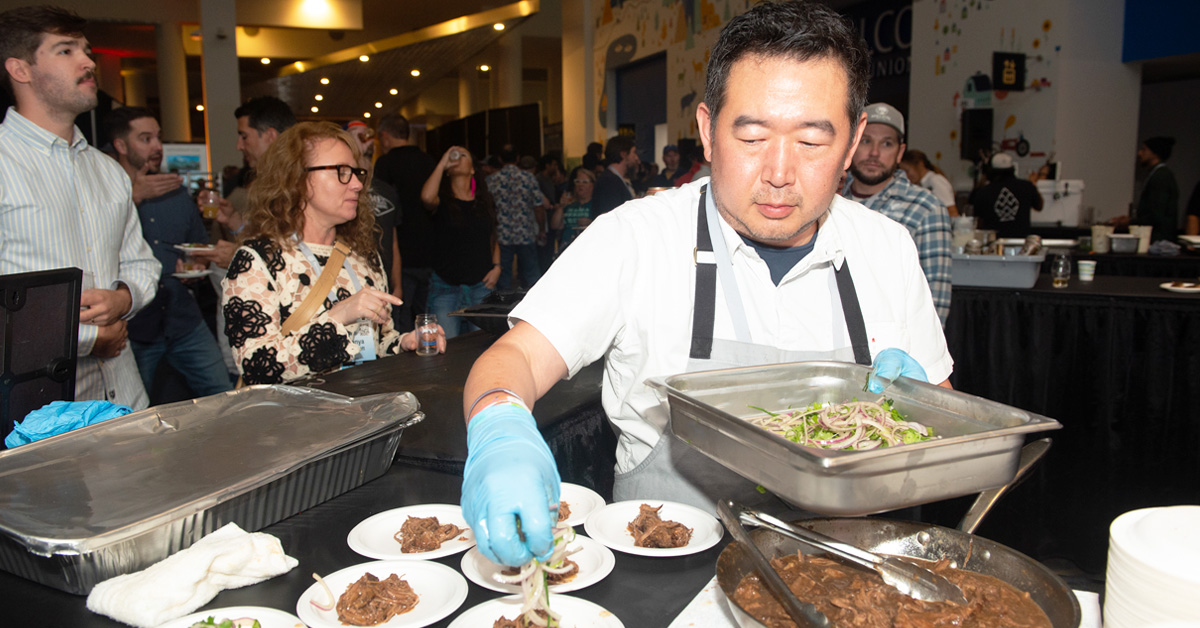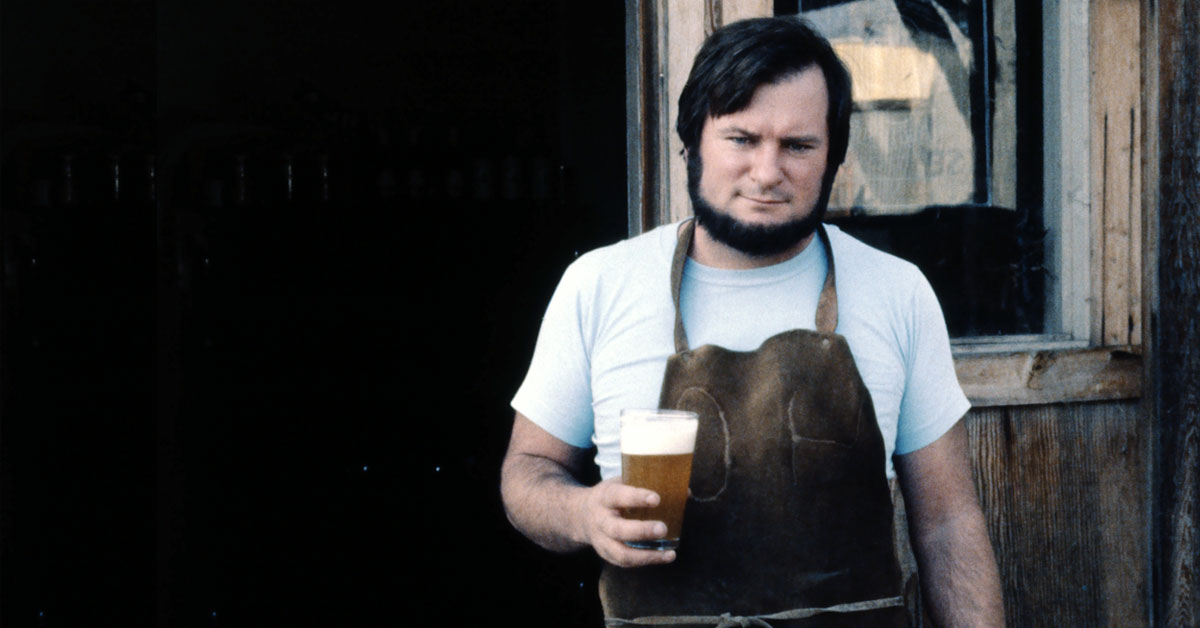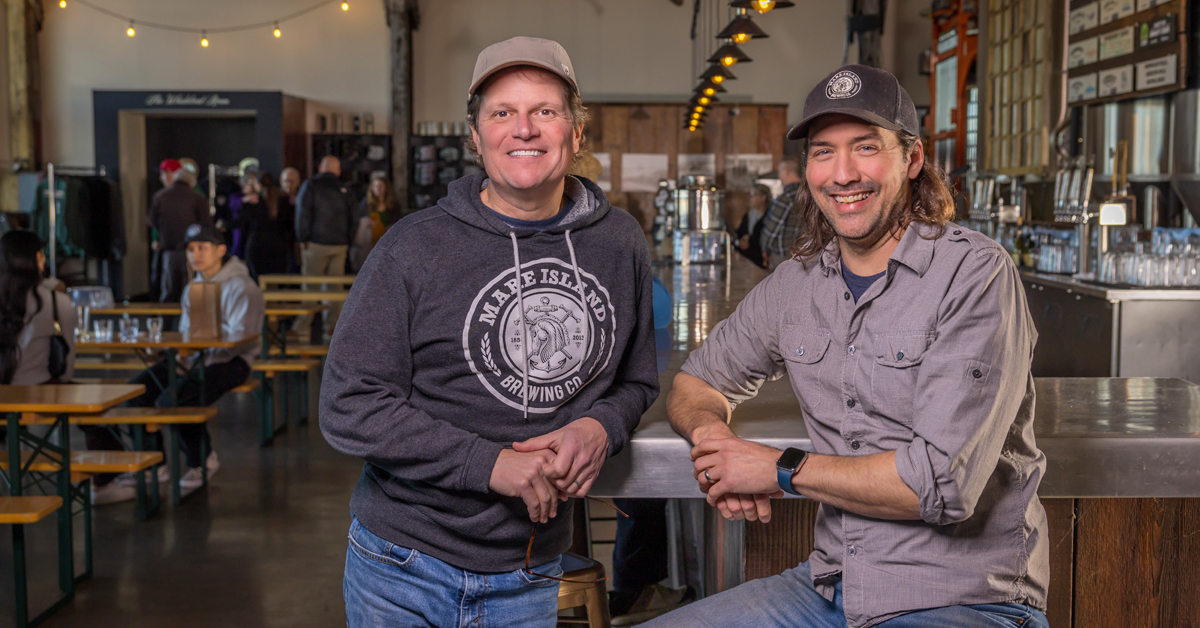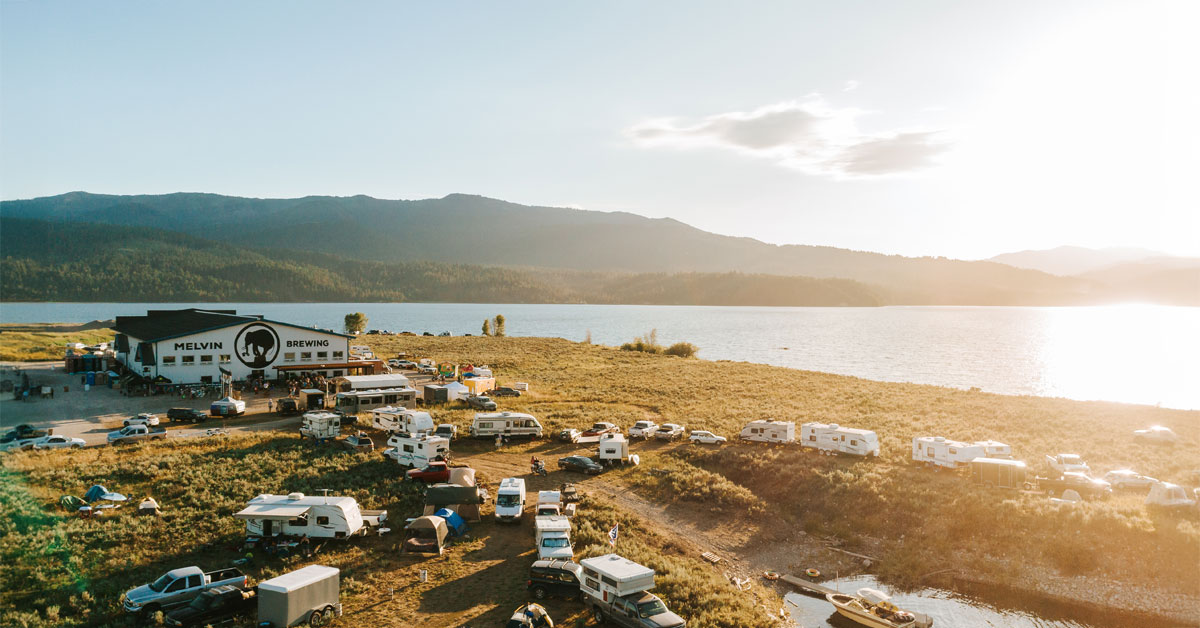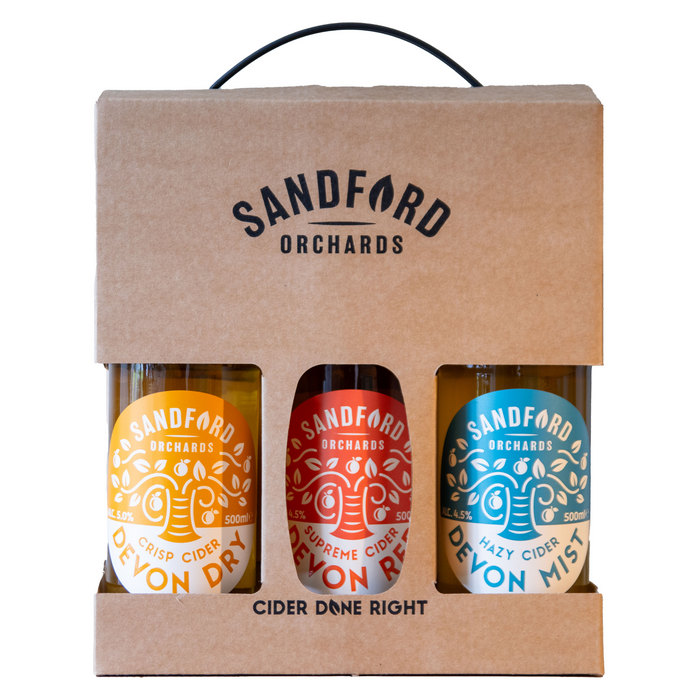As the owner of R&R Brewing, Ryan Roberts maximizes value from every square foot of his property in pickle-famous Mount Olive, N.C.. He built a fenced-in yard for folks to grab BBQ and more from food trucks, ideally to enjoy with pints, but many people didn’t venture inside the brewery.
“That land still has taxes paid on it, so it’s like, what can we do to make this dirt more valuable?” says Roberts, who opened R&R in 2018.
In fall 2020, Roberts answered a call from Harvest Hosts, a membership program that lets people park, for no extra fee, self-contained RVs on private properties such as farms, golf courses, and breweries. The pitch: He’d provide flat ground, and campers were encouraged to spend money at host businesses.
Roberts signed up, spent $60 on a few signs, and welcomed his first R&R camper that December. A positive review led to more bookings, as campers were “so happy they weren’t in a Walmart parking lot,” Roberts says. “They would come in and spend like $80.”
A decade ago, encouraging people to patronize breweries was simple: brew beer and they’d come. But local beer is no longer a novel lure. To attract customers and make use of underutilized land, some breweries are opening campgrounds that entice travelers to stay and grab dinner and drinks.
“We have a captive audience,” Roberts says. “As far as return on investment, this is one of the best things we’ve ever done.”
Embracing the Outdoors
A camping boom began in the pandemic as people sought fresh air and fewer folks, leading them to national parks and campgrounds where cracking beers is commonplace. According to surveys from the Dyrt, a camping platform, 45 percent of its campers bring beer while camping, and 37 percent of beer-drinking campers favor craft beer.
Nowadays, securing reservations at national parks is becoming increasingly difficult. Seeking accommodations, campers are turning to platforms such as Harvest Hosts, Hipcamp, and the Dyrt that are partnering with private landowners to offer camping.
“Businesses are realizing that they have an untapped resource sitting here,” says Kevin Long, CEO of the Dyrt, adding that breweries are a big draw. Campers can drink a few beers and “don’t even have to drive home,” he says.
Proximity to IPAs is part of the appeal. Melvin Brewing is in Alpine, Wyo., on the shores of the Palisades Reservoir and adjoining Bureau of Land Management property. People are free to pitch tents and park RVs on no-frills, first-come, first-served dispersed campsites right by the brewery.
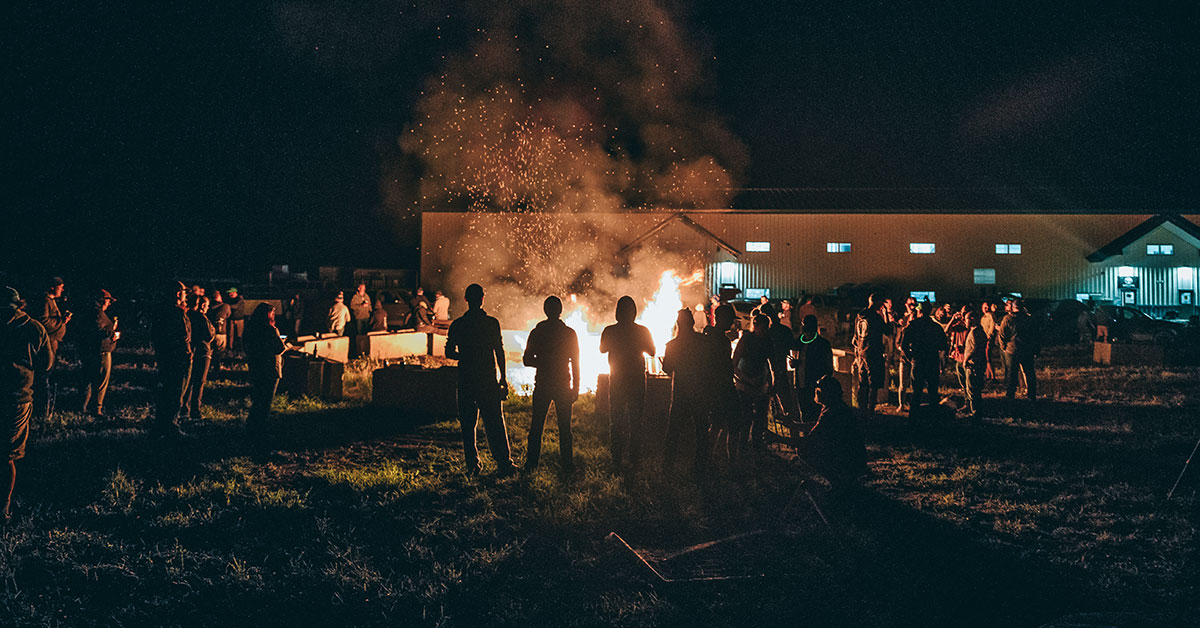
“It’s Wyoming, it’s wild, it’s out of bounds, it’s free,” says Molly Reilly, vice president of marketing for the brewery’s parent company Pure Madness Group. Campers can crush a few Melvin IPAs, then stroll back to bed nearby “beneath total dark skies,” Reilly says.
Golden Grove Farm & Brew opened in 2017 Piedmont, S.C., just off heavily trafficked Interstate 85 where “50,000 people pass the brewery per day,” says Andrew Brown, co-founder. The brewery sits on 100 acres with an 18-hole disc golf course and space aplenty for camping. Golden Grove, which has three spots equipped with power, will soon add enough power for 20 additional campers and plans to majorly expand its campground in the future.
“Folks that stay with us spend money with us,” Brown says. “Even if they don’t drink, they’ll buy merch.”
Instead of bringing a campground to a brewery, Doug Olsen added a brewery to an existing campground. In 2023, he bought Indian Lake Adventures campground in Huntsville, Ohio, adding Camp Brewing in an existing building the following year. “When you open a brewery at a campground, the campground stays full,” Olsen says. “Campers like hanging out and drinking beer.”
Adding beer isn’t without challenges. A campground and a brewery, including a taproom, are different businesses that require different staff and licensing. Campers are allowed to bring beer to Indian Lake, but they can’t bring outside beverages to Camp’s taproom. If customers want, they can buy to-go growlers or cups of Pitch a Tent Pilsner, Into the Woods Wheat, and Roughin’ It Red Ale that can be consumed on the grounds or at the campsites.
This fall, Olsen plans to expand the camping-and-beer concept at Adventure Trails, another campground that he purchased in Bellefontaine, Ohio. Camp is contract-brewing beer to meet production demands for both campers and locals looking for cold beers.
“We need to play catch up,” Olsen says.
Hops and Parking Lots
Part of camping’s charm is exploring an unexpected location. This spring, Billy Goat Hop Farm in Montrose, Colo., opened the Down at the Hopyard campground that welcomes campers beside hop bines climbing skyward on trellises.
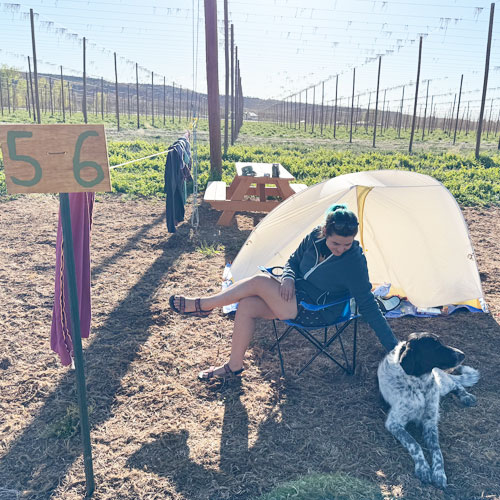
A visit doubles as an educational experience. “We talk to people in the morning and everybody is always like, ‘Wow, this is so cool,’” says Audrey Gehlhausen, the farm’s president, adding that guests can also try beers made with the farm’s hops. “It’s important to know where your hops come from,” Gehlhausen says.
Urban breweries are also hosting campers. Mash Mechanix Brewing sits in Colorado Springs, Colo., “right in the center of the tourist attractions,” says Leif Anderson, head brewer and co-owner. He’s a regular camper, and after using Harvest Hosts during trips Anderson turned the brewery’s paved parking lot into a campground.
He reserves two parking spaces for Sprinter vans and truck-bed campers—no trailers or rigs larger than 25 feet—to park for free overnight and partake in views of Pikes Peak while sipping offerings such as Hill Climb Hero lager and Trailer Queen hard seltzer.
Camping broadens the brewery’s customer base. “People vacation in Colorado Springs and stop in because somebody else in their family stayed here,” Anderson says.
Festival Rides and Camper Vans
Many beer festivals are in rural locations not well served by mass transportation or rideshare. As a solution, festivals offer camping that creates immersive experiences on a brewery’s property.
“Our most important marketing effort is to show off our brewery,” says Jordan Egbert, brand manager for Brewery Ommegang.
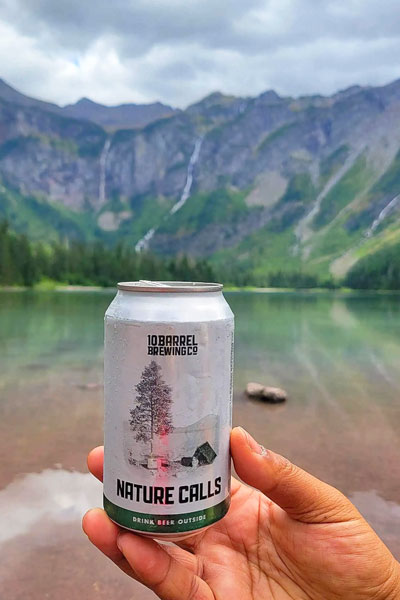
The bucolic brewery is on a former hop farm in Cooperstown, N.Y., and hosts the annual Belgium Comes to Cooperstown festival. (This year’s edition is August 23.) Campers can either stay for one or two nights, enjoying hot breakfast, bands, bathrooms, and camaraderie. Camping is where “bottle shares happen, and new friends are found,” Egbert says.
Camping is also a more affordable and abundant option than hotels. Burning Foot Beer Festival (also August 23) takes place in Muskegon, Mich., on the sandy shores of Lake Michigan where attendees pay $70 for one of 300 beachfront campsites that can sleep four people.
“With a smaller town and limited hotel space, camping gives our patrons space to spend the night after hanging out at a beer festival,” says Jimmy Hegedus, beverage director.
Not every camper wants a rustic site. Hospitality is essential for breweries, be it in the taproom or campground. Over two decades, Win and Lori Mitchell, the owners of Boothbay Craft Brewery in Boothbay, Maine, have steadily transformed their 10-acre campground and brewery into a “boutique RV park,” Win says.
The couple, who are avid RV travelers, tore down most of the property’s old cabins and added RV hook-up sites (there are around 24). They take pride in their tavern’s kitchen that serves smoked brisket, local oysters, and a lobster-packed pretzel bun that excels with Lobsterbake Lager. Everyone leaves Boothbay full, content, and well rested.
“Campers who come here tell other campers, and that is our best compliment and best advertisement,” Lori says.
Since 2000, Joshua M. Bernstein has written for scores of newspapers, magazines and websites, including The New York Times, Bon Appétit, New York, Food & Wine, The Atlantic, and Imbibe, where he’s a contributing editor in charge of beer coverage. Additionally, he’s a contributing editor for SevenFifty Daily and a contributing writer to Men’s Journal. Bernstein is also the author of six beer books including, most recently, the tenth-anniversary edition of The Complete Beer Course.
CraftBeer.com is fully dedicated to small and independent U.S. breweries. We are published by the Brewers Association, the not-for-profit trade group dedicated to promoting and protecting America’s small and independent craft brewers. Stories and opinions shared on CraftBeer.com do not imply endorsement by or positions taken by the Brewers Association or its members.

